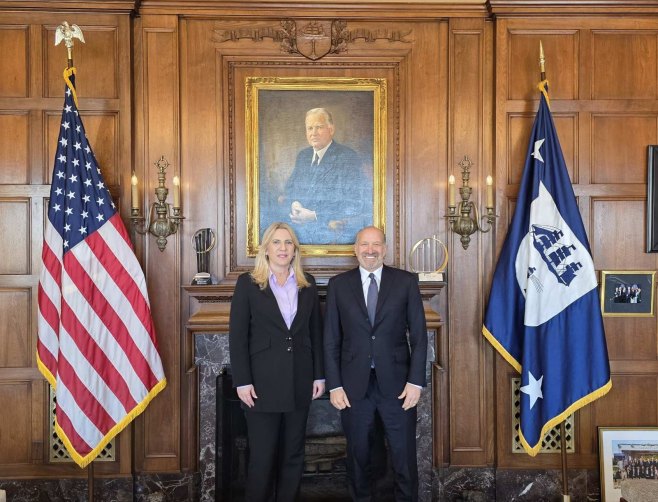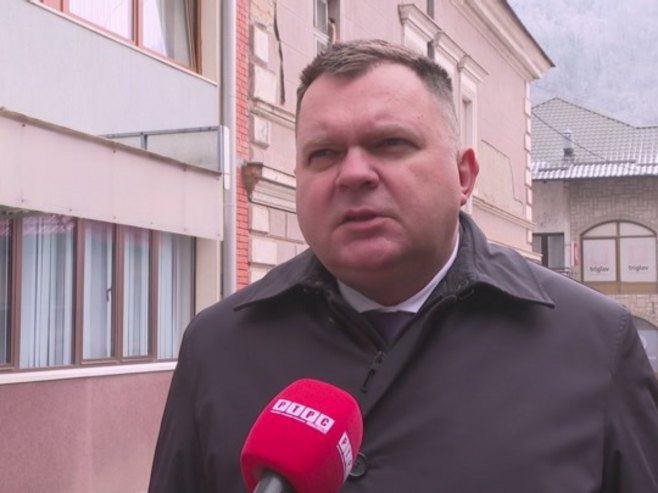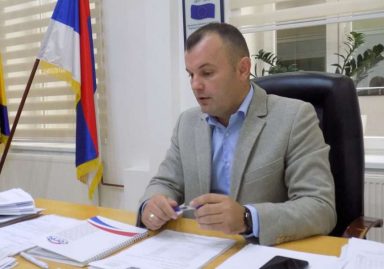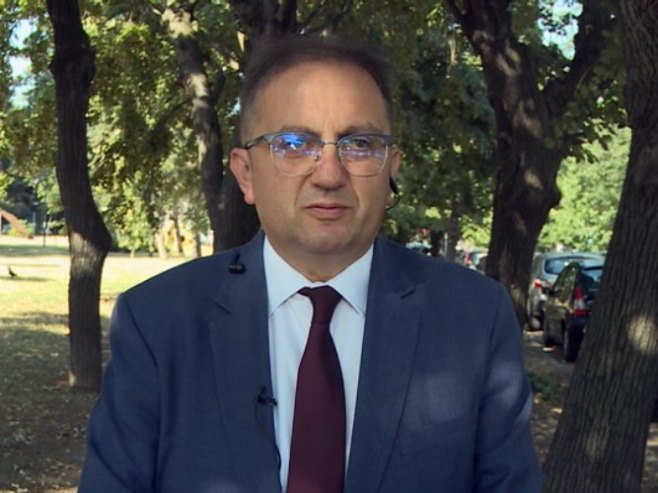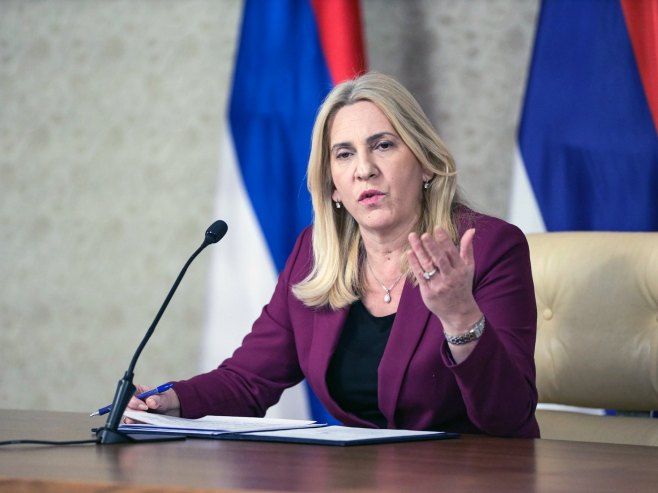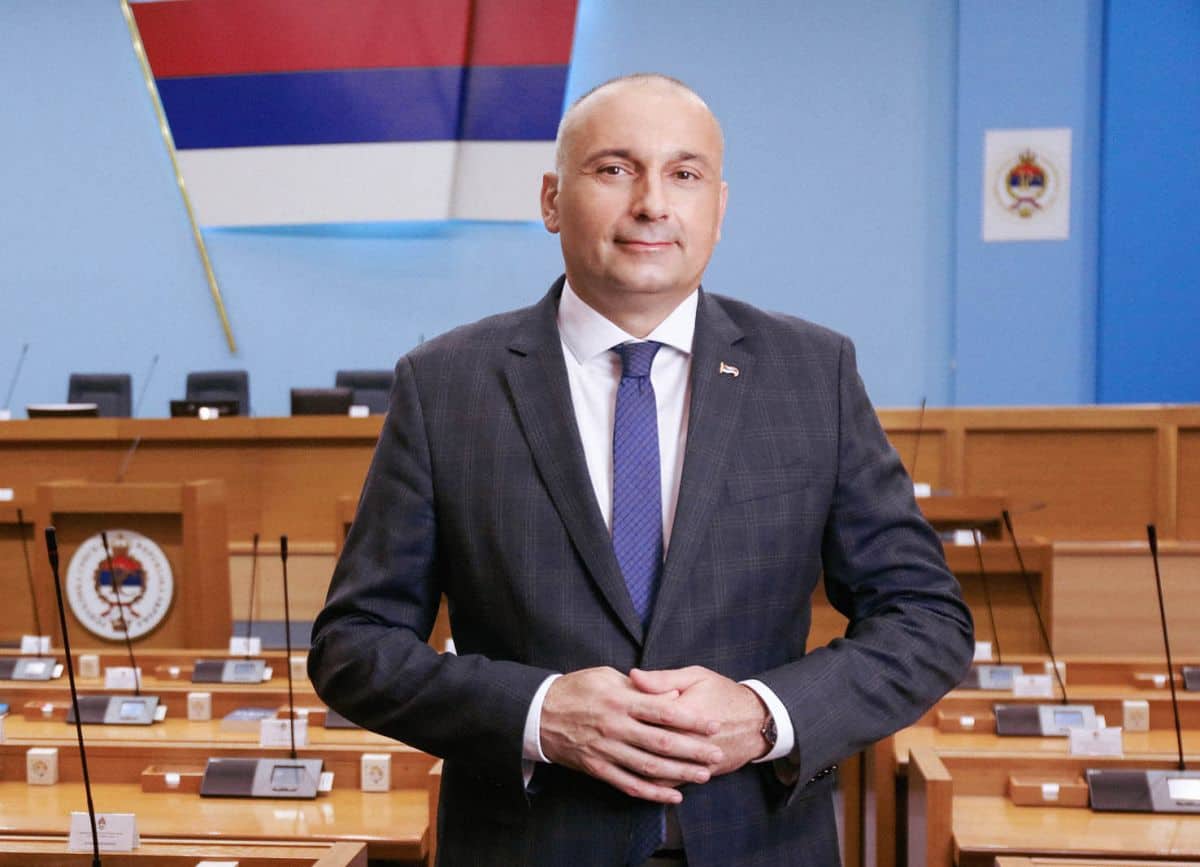Željka Cvijanovic, a member of the Presidency of Bosnia and Herzegovina, emphasized that the departure of foreign judges from the Constitutional Court of BiH is the only way to end the crisis in the functioning of this judicial institution.
According to her words, if the foreign judges had protected the credibility of the court and the Constitution, instead of creating new constitutional solutions, this issue would not be so prominently positioned on the political agenda, especially in Republika Srpska.
- “However, this bad practice, in which the Constitution is attacked more than it is protected, and where decisions have been made that diverged from what the Constitution envisioned and to which Republika Srpska had consented, has led to this becoming such an important and challenging issue,” said Cvijanović.
She reminded that within the framework of the 14 key priorities set by the EU for BiH, it was emphasized that a reform of the Constitutional Court must be carried out. She pointed out that power should first be returned to domestic structures, and then defined and regulated by law how the Constitutional Court should function.
“There should be a practice that will restore people’s trust in what the court does. A series of wrong things has led to this truly difficult issue that generates high political tension and has imposed itself as one of the priorities,” stated Cvijanović.
Speaking about Christian Schmidt’s statements regarding imposing changes to the Election Law and punishing those who celebrate the Republic of Srpska Day on January 9, citing specific decisions of the Constitutional Court on this matter, Cvijanović reminded that a judge from Macedonia in the Constitutional Court of BiH had ruled and stated that January 9 is harmful due to its connection with a religious holiday, which it is not.
“Here, we are talking about the Republic Day, and the fact that it coincides with a religious holiday is a completely different dimension. At the same time, that judge comes from a country where a religious holiday, Ilinden, is the Statehood Day. These are incredible inconsistencies,” stated Cvijanović for Srpskainfo.
She added that the decision of the Constitutional Court of BiH to declare January 9 unconstitutional was a political decision to satisfy the political ambitions of the Bosniak elite, stating that it is not grounded in law or the Constitution.
“Especially considering that BiH does not have a law on holidays. If we could agree on that, we would have agreed. All of that remains within the jurisdiction of the entities that organize holidays,” emphasized Cvijanović.
Speaking about Schmidt’s announcement to impose changes to the Election Law, Cvijanović emphasized that she is against any imposition, even when high representatives are appointed in accordance with the prescribed procedure. She stated that they did not receive mandates to impose laws, change the Constitution, dismiss people, leave them without personal documents, and deny them access to jobs.
“That is perverse and part of a completely wrong development path for BiH, which is why we find ourselves in a dead end and despair today. It is not just about what domestic institutions have done but also to a large extent about what various high representatives have done. Imposition is unacceptable for several reasons,” emphasized Cvijanović.
She added that if Schmidt thought he would dismiss someone, he would not do so, emphasizing that elected politicians in the elections have the obligation to perform a certain function on behalf of the people.
“There is no Christian Schmidt or anyone else who should impose that,” added Cvijanović.
According to her, high representatives and foreign judges in the Constitutional Court of BiH, along with Bosniak judges, have led BiH to the point where it is a state not foreseen by the Constitution, to which everyone in BiH has given consent.
“Then they sanction us based on alleged disrespect for the Dayton Agreement, but when you look at what is written in that agreement and what we have in practice, it has nothing to do with each other. There are a sea of incompatible and illogical things here, which are harmful to BiH,” emphasized Cvijanović.
Speaking about the legal process against the President of Republika Srpska, Milorad Dodik, Cvijanović reiterated that he was just doing his job as prescribed by the Constitution, signing a decree declaring a certain law.
“In that indictment, it is alleged that someone committed a criminal act because they were performing their Constitutionally prescribed duty. Imagine how ridiculous all of this is, how tragic and comical it has become,” added Cvijanović.
Cvijanović emphasized that she wants to believe in unity between the government and the opposition in Republika Srpska when it comes to protecting vital national interests, but the practice has contradicted this belief over the years.
“I want to believe that our unity exists when it comes to public property, when it comes to January 9, and it would be good if it exists when it comes to all other issues that are burdensome for Republika Srpska, where Srpska is struggling to preserve its constitutional capacity,” concluded Cvijanović.
Source: RTRS
